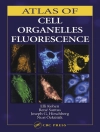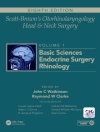This volume brings together noted scientists who study presbycusis from the perspective of complementary disciplines, for a review of the current state of knowledge on the aging auditory system. Age-related hearing loss (ARHL) is one of the top three most common chronic health conditions affecting individuals aged 65 years and older. The high prevalence of age-related hearing loss compels audiologists, otolaryngologists, and auditory neuroscientists alike to understand the neural, genetic and molecular mechanisms underlying this disorder. A comprehensive understanding of these factors is needed so that effective prevention, intervention, and rehabilitative strategies can be developed to ameliorate the myriad of behavioral manifestations.
สารบัญ
and Overview.- The Physiology of Cochlear Presbycusis.- Cell Biology and Physiology of the Aging Central Auditory Pathway.- Closing the Gap Between Neurobiology and Human Presbycusis: Behavioral and Evoked Potential Studies of Age-Related Hearing Loss in Animal Models and in Humans.- Behavioral Studies With Aging Humans: Hearing Sensitivity and Psychoacoustics.- Binaural Processing and Auditory Asymmetries.- Effects of Senescent Changes in Audition and Cognition on Spoken Language Comprehension.- Factors Affecting Speech Understanding in Older Adults.- Epidemiology of Age-Related Hearing Impairment.- Interventions and Future Therapies: Lessons from Animal Models.












